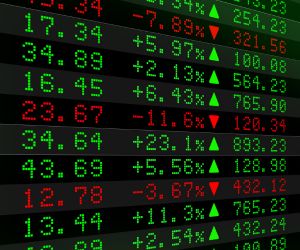This guide delves into the essential aspects of trading the FTSE 100, from understanding the index to exploring various trading strategies. Discover why the FTSE 100 is a cornerstone in many investment portfolios due to its diversification and liquidity benefits. Learn advanced techniques such as leverage, pairs trading, and algorithmic trading to enhance your trading. We also cover essential tools and resources, including research platforms, educational materials, and trader communities that keep you informed and connected. Furthermore, our guide emphasizes the importance of emotional control, robust risk management, and continuous learning to successfully navigate market complexities. Finally, we offer practical insights to guide you in creating a detailed trading plan and leveraging technology to refine your strategies. Dive in to equip yourself with the knowledge and tools needed to successfully trade the FTSE 100.

How to Trade the FTSE 100 Index
The FTSE 100 is the leading stock market index in the United Kingdom, comprising the 100 largest companies by market capitalization on the London Stock Exchange (LSE). Its performance reflects both the British economy and global trends, given the international exposure of many of its companies. It is a popular index among traders due to its high liquidity and correlation with global markets.
Features of the FTSE 100 in Trading
High Liquidity: It is one of the most liquid indices in Europe, with tight spreads on trading platforms.
Global Influence: Companies with international operations mean the index is linked to external factors, such as the strength of the British pound (GBP) and the global economy.
Sensitivity to the Pound: A strong GBP can negatively affect the FTSE 100's exporting companies.
Trading Hours: It trades on the London Stock Exchange (LSE) from 08:00 to 16:30 (GMT), but it can be traded on futures and CFDs platforms almost 24/5.
Instruments to Trade the FTSE 100
FTSE 100 Futures: Traded on ICE Europe, they allow direct exposure with leverage.
FTSE 100 CFDs: A popular tool for retail traders due to its accessibility and reduced costs.
FTSE 100 ETFs: An alternative for those seeking exposure without using derivatives.
FTSE 100 Options: Useful for hedging strategies or speculation with limited risk.
Trading Strategies for the FTSE 100
1. European Session Trading
The FTSE 100 experiences high volatility at the opening and closing of the London market. Key strategies include:
Opening Breakout: Trade breakouts in the first hour after identifying key ranges.
Scalping: Short-term strategies in the first 90 minutes of the session.
2. Trend Strategy
The FTSE 100 tends to follow well-defined trends in the medium term. Recommended tools:
Moving Averages (50 and 200): Identify trend changes with moving average crossovers.
Price Channels: Identify dynamic support and resistance areas.
3. Pullbacks and Reversals
After strong movements, the index offers reversal opportunities. Key methods:
Fibonacci: Look for retracements at the 38.2%, 50%, and 61.8% levels.
RSI: Identify overbought or oversold conditions before potential reversals.
4. Correlations and Global Factors
The FTSE 100 is influenced by various international factors, such as:
British Pound (GBP): A strong GBP negatively affects the index's exporting companies.
Commodities: Mining and energy companies within the index depend on the price of oil, gold, and copper.
US Indices (S&P 500, Dow Jones): Correlation with Wall Street can impact the FTSE 100's direction.
Risk Management in Trading the FTSE 100
Mandatory Stop-Loss: Protects against volatility in macroeconomic events.
Leverage Control: Avoid overexposure during times of uncertainty.
Monitoring Economic Data: GDP reports, inflation, and Bank of England decisions affect the index.
Discipline and Planning: Follow a trading plan without getting carried away by emotions.
SWOT Analysis of the FTSE 100 as an Index
This SWOT analysis evaluates the FTSE 100, the leading stock index in the United Kingdom, considering the influence of the British economy, monetary policy, and the challenges in an increasingly competitive and dynamic global environment.
Strengths:
Concentration of Leading Companies: The FTSE 100 brings together major companies in the UK, including giants in sectors such as finance, energy, consumer goods, and technology, giving it a strong representation of national economic performance.
Access to a Global Market: London's reputation as a global financial center and the high liquidity of the UK market provide stability and attractiveness to the index for international investors.
Corporate Quality: Companies in the FTSE 100 often exhibit robust corporate practices and good governance, which fosters confidence among long-term investors.
Weaknesses:
Exposure to Political Uncertainties: Factors such as Brexit and uncertainties in fiscal and regulatory policies have generated volatility and challenges in the British economic environment.
Moderate Economic Growth: The current low economic growth in the UK limits potential appreciation and sometimes the profitability of the index.
Sectoral Dependency: A high concentration in certain sectors, such as finance or energy, can expose the index to specific market fluctuations.
Opportunities:
Post-Brexit Reconstruction: The stabilization of the British economy and the implementation of new growth policies could restore market confidence and increase the value of the index.
Attraction of Foreign Investment: London remains a magnet for global capital, and the continuous flow of foreign investment can boost the demand for FTSE 100 assets.
Innovation and Digitalization: The digital transformation and investment in technology by companies in the index can open new growth opportunities and enhance competitiveness in a global market.
Threats:
Global Economic Instability: International crises, trade tensions, and changes in the macroeconomic environment can affect investor confidence and cause volatility in the British market.
Competition from Other Markets: The strengthening of currencies and markets in emerging economies, as well as indices from other regions, can divert investor attention away from the FTSE 100.
Regulatory Risks: Changes in fiscal and monetary policy both in the UK and the EU, along with potential regulatory reforms, can create uncertainty and affect the stability of the index.
What is an International Stock Broker?
An International Stock Broker is the entity (or platform) that allows you to buy and sell shares of companies listed on stock exchanges in various countries around the world. Unlike a local brokerage house, the main focus of International Brokers is on offering access to global markets, such as the US, European, or Asian markets.
Why do we need an International Stock Broker?
Investing in international stocks can be an excellent way to diversify your portfolio, as it provides the opportunity to participate in the growth of economies and sectors worldwide. However, operating in global markets is not as straightforward as in the local market: it requires specific knowledge, compliance with international regulations, and the use of advanced trading platforms.
An International Stock Broker brings all these investment opportunities together in one place and allows you to access different exchanges and trading conditions, in exchange for a commission.
Examples and Comparisons:
There are several well-known International Stock Brokers, such as Interactive Brokers, eToro, TD Ameritrade, or Saxo Bank, among others. Each one offers trading platforms with unique features and commissions that vary depending on the service. Some are notable for providing market analysis and advice in multiple languages, while others may offer more competitive operational costs or social trading tools. These details allow you to choose the option that best suits your needs and investor profile.
Regulatory and Security Aspects
It is crucial that the International Stock Broker you choose is regulated by recognized entities in the country where it operates, such as the U.S. Securities and Exchange Commission (SEC) in the United States, the Financial Conduct Authority (FCA) in the United Kingdom, or the Comissão de Valores Mobiliários (CVM) in Brazil, among others. This oversight ensures that the broker complies with strict security and transparency standards, providing you with greater confidence when investing your money.
How do Brokers “Connect” to International Markets?
Through agreements with foreign stock exchanges and the use of advanced technological platforms, International Stock Brokers process buy and sell orders placed by their clients. They organize transactions based on price, order of arrival, and other parameters, and charge a commission when the transaction is executed. This technological infrastructure allows trades to be carried out quickly and securely, facilitating real-time tracking of your investments.
In conclusion, an International Stock Broker is your gateway to the world's major stock markets. Thanks to its regulation, trading platforms, and knowledge of global markets, you can diversify your portfolio and seek growth opportunities in different sectors and countries.





